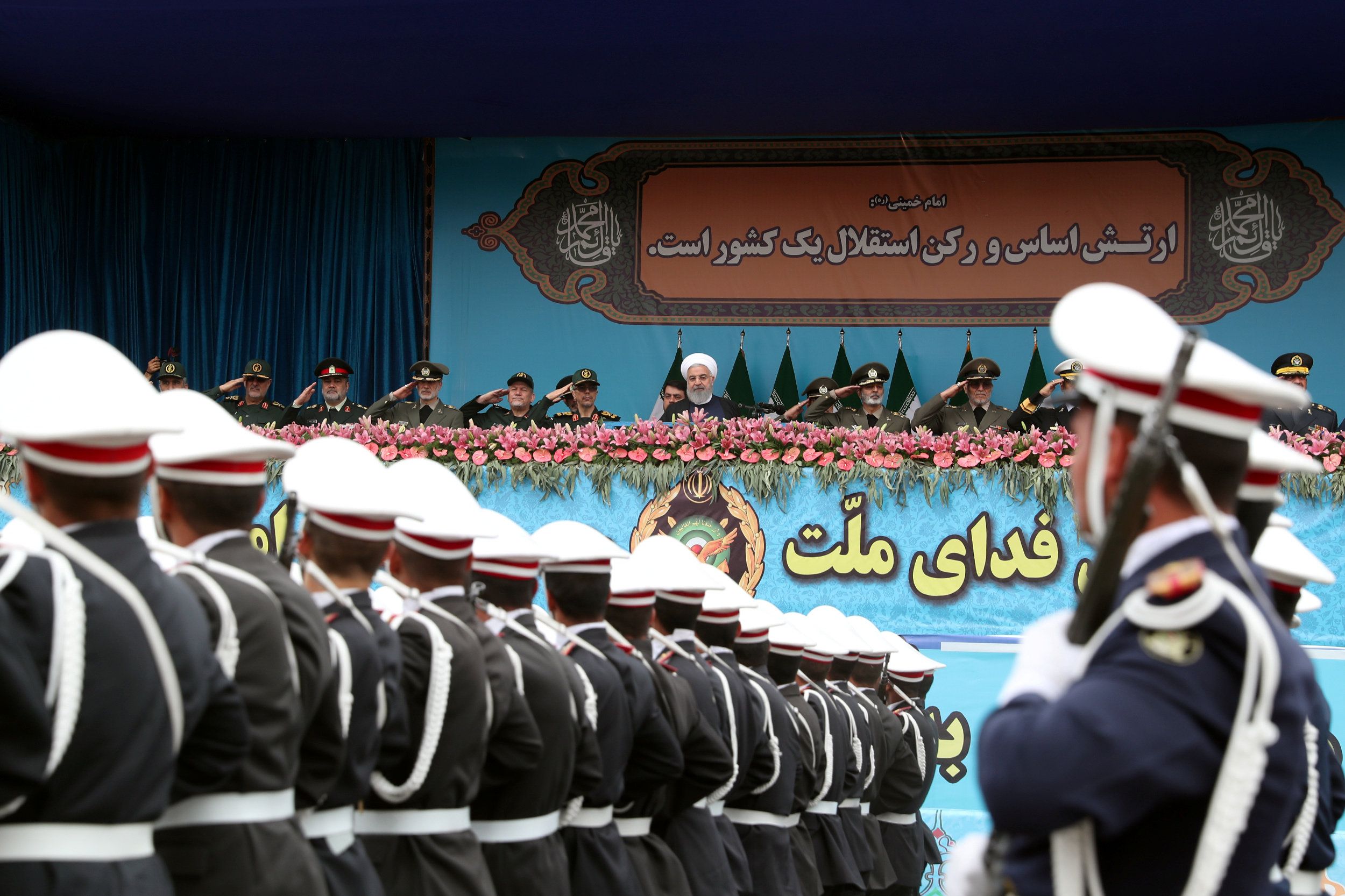The US and Iran are headed down a dangerous path.
On April 22, President Donald Trump tightened the screws on Iran's economy by announcing that China, Japan, India, South Korea, Turkey, and others would no longer be granted exemptions from US sanctions to continue buying Iranian oil, the country's most important export.
On May 5, US National Security Advisor John Bolton announced the deployment of a carrier strike group and bombers to the Middle East in response to "indications and warnings" that Iran threatened US forces.
Iran then announced this week that it would mark Wednesday's one-year anniversary of Trump's decision to withdraw from the Iran nuclear deal by ending compliance with two provisions of that agreement.
In particular, Iran's President Hassan Rouhani warned that if the five other countries who signed that agreement—France, Germany, the UK, China, and Russia—don't act within 60 days to help Iran weather the economic storm created by US sanctions, Iran will ignore the deal's limits on uranium enrichment, setting it on the path, once again, to acquire a nuclear weapon.
A few things to keep in mind as you follow the progression of this story:
- Trump has avoided aggressive military action, because he knows it has undermined the popularity of past presidents. He's made plenty of threats—against North Korea, Venezuela, and Iran, for example—but he's avoided ambitious commitments that come with high risk and long-term costs.
- The president's national security advisor does not share his reluctance to use military force. John Bolton has been calling for regime change in Iran for more than a decade, and he authored a New York Times op-ed in 2015 under the headline "To Stop Iran's Bomb, Bomb Iran."
- Trump may be suspicious of Bolton. A piece in Wednesday's Washington Post reported that anonymous "administration officials and White House advisers" claim that Trump has complained aloud that Bolton is pushing him toward military action in Venezuela. If nothing else, this story suggests that some in the White House are worried about Bolton's influence–on Venezuela, if not Iran. On Thursday, Trump said this to describe his relationship with Bolton: "John has strong views on things… I actually temper John, which is pretty amazing. Isn't it?
- Iran's economy is in real trouble. Its leaders may feel they have little to lose by pushing the Europeans to provide an economic lifeline by threatening the nuclear deal. Trump's decision to reimpose sanctions has pushed the country into a deepening recession. GDP is projected to fall 6 percent this year, according to the IMF, making it one of the toughest periods since the Iranian Revolution in 1979. Its currency has lost nearly 60 percent of its value since sanctions were reimposed. Price inflation topped 30 percent last year and will rise even more quickly this year.
- Europeans will do little to help Iran. The UK, France, and Germany have made clear they believe Iran has kept its end of the nuclear deal and that Trump was wrong to withdraw from it. In January, they created a payments system to help maintain trade in non-sanctioned food, pharmaceutical products and consumer goods with Iran. But Europe is struggling to convince companies more worried about losing access to US consumers than Iranian markets to keep operating there. And they warn they can't continue to abide by terms of the nuclear deal if Iran renounces important parts of it.
The bottom line: Tensions are rising quickly, and for now there is little ground on which the US, Iranian, and European governments can compromise.
- Can Pompeo build a European coalition against Iran? - GZERO Media ›
- Will Trump Keep His Promise of 'No New Wars'? - GZERO Media ›
